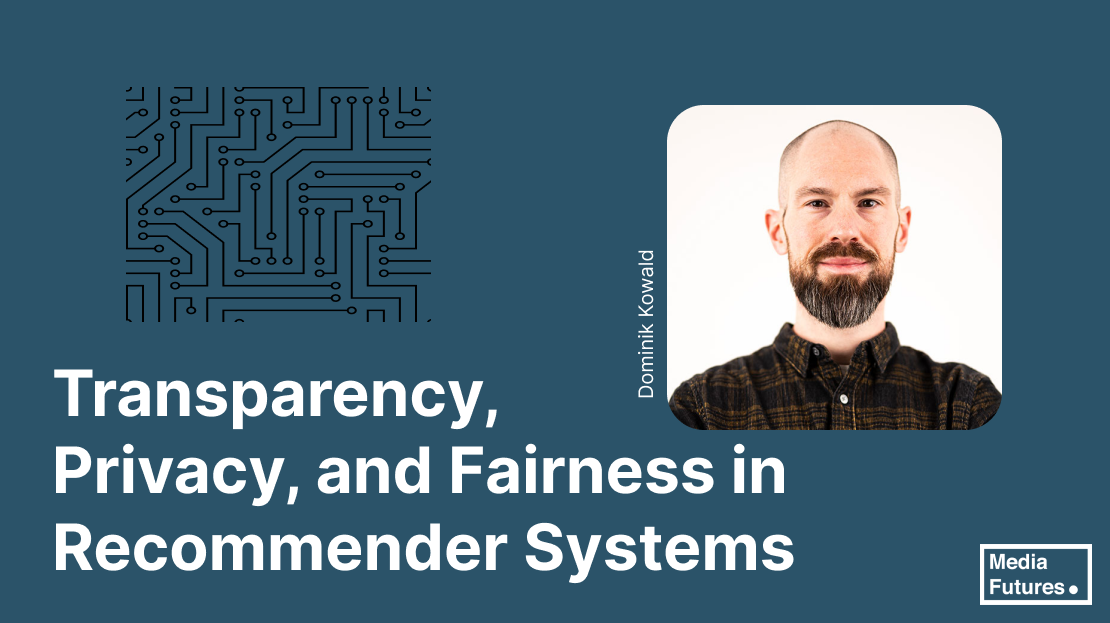
- This event has passed.
Transparency, Privacy, and Fairness in Recommender Systems

MediaFutures has invited Dipl.Ing. Dr.techn. Dominik Kowald from Graz, Austria to talk about transparency, privacy and fairness in recommender systems. He is research area manager in Fair AI at the Know-Center and senior researcher and lecturer – ISDS (TU Graz).
Recommender systems have become a pervasive part of our daily online experience by analyzing past usage behavior to suggest potential relevant content, e.g., music, movies, or books. Today, recommender systems are one of the most widely used applications of artificial intelligence and machine learning. Therefore, regulations and requirements for trustworthy artificial intelligence, for example, the European AI Act, which includes notions such as transparency, privacy, and fairness are also highly relevant for the design, development, evaluation, and deployment of recommender systems in practice.
This talk elaborates on aspects related to these three notions in the light of recommender systems, namely: (i) transparency and cognitive models, (ii) privacy and limited preference information, and (iii) fairness and popularity bias in recommender systems. Specifically, with respect to aspect (i), I highlight the usefulness of incorporating psychological theories for a transparent design process of recommender systems. Additionally, I show that cognitive models can further contribute to transparency aspects by illustrating how the models’ components have contributed to generate the recommendation lists. In aspect (ii), I study and address the trade-off between accuracy and privacy in differentially-private recommendations.
Dominic Kowald presents a novel recommendation approach for collaborative filtering based on an efficient neighborhood reuse concept, which reduces the number of users that need to be protected with differential privacy. Furthermore, he outlines the related issue of limited availability of user preference information, e.g., click data, in the settings of session-based recommendations, by using variational autoencoders. With respect to aspect (iii), he discusses popularity bias in collaborative filtering-based recommender systems and shows that the recommendation frequency of an item is positively correlated with this item’s popularity. This also leads to the unfair treatment of users with little interest in popular content, since these users receive worse recommendation accuracy results than users with high interest in popular content. Besides, Kowald presents results of an online study on popularity bias mitigation in the field of news article recommendations. He closes the talk by illustrating the trade-off between privacy and popularity bias in recommender systems and by outlining future research possibilities in this direction.
After the talk, Kowald will present the Know-Center, and some of their success stories and lessons learned of applied research projects with industry partners.
